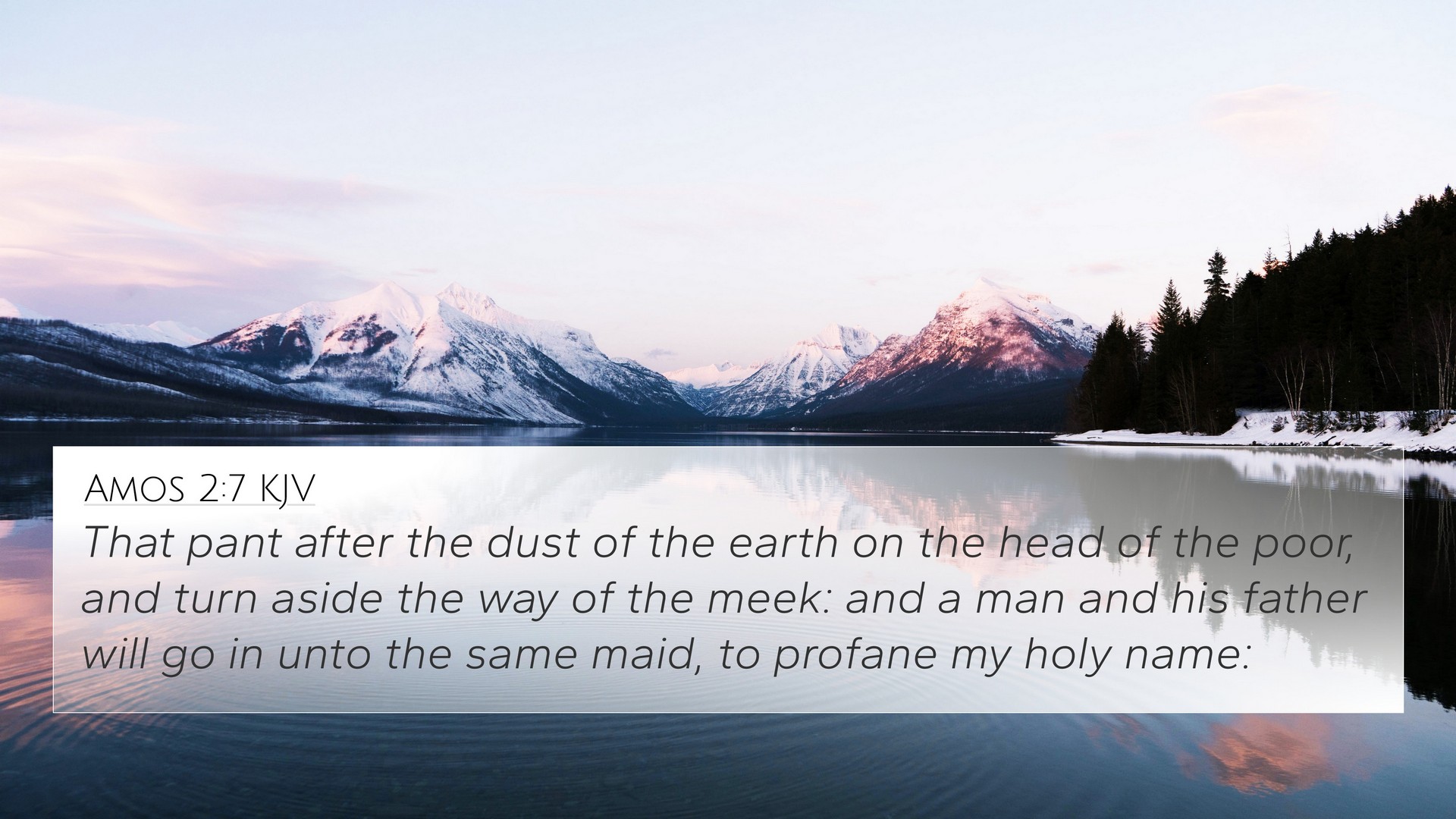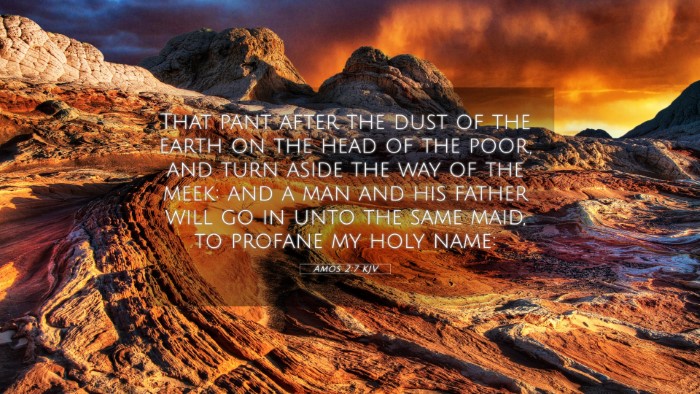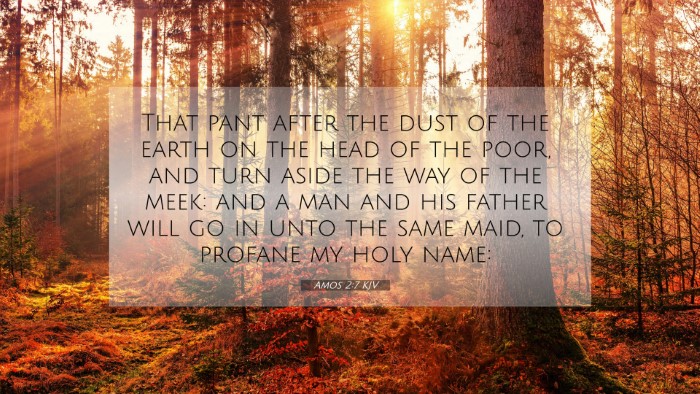Old Testament
Genesis Exodus Leviticus Numbers Deuteronomy Joshua Judges Ruth 1 Samuel 2 Samuel 1 Kings 2 Kings 1 Chronicles 2 Chronicles Ezra Nehemiah Esther Job Psalms Proverbs Ecclesiastes Song of Solomon Isaiah Jeremiah Lamentations Ezekiel Daniel Hosea Joel Amos Obadiah Jonah Micah Nahum Habakkuk Zephaniah Haggai Zechariah MalachiAmos 2:7 Similar Verses
Amos 2:7 Cross References
That pant after the dust of the earth on the head of the poor, and turn aside the way of the meek: and a man and his father will go in unto the same maid, to profane my holy name:
Uncover the Rich Themes and Topics of This Bible Verse
Listed below are the Bible themes associated with Amos 2:7. We invite you to explore each theme to gain deeper insights into the Scriptures.
Amos 2:7 Cross Reference Verses
This section features a detailed cross-reference designed to enrich your understanding of the Scriptures. Below, you will find carefully selected verses that echo the themes and teachings related to Amos 2:7 KJV. Click on any image to explore detailed analyses of related Bible verses and uncover deeper theological insights.
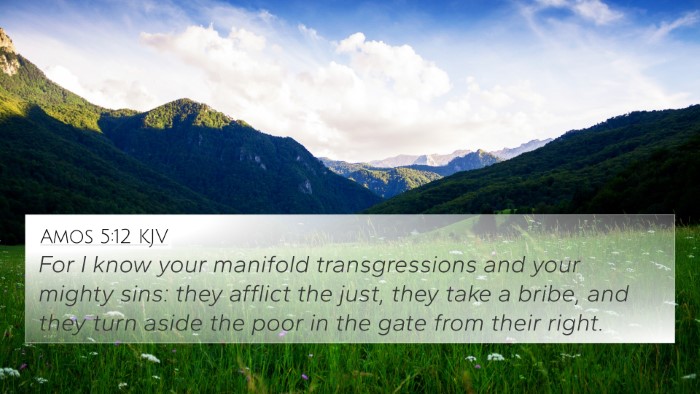
Amos 5:12 (KJV) »
For I know your manifold transgressions and your mighty sins: they afflict the just, they take a bribe, and they turn aside the poor in the gate from their right.
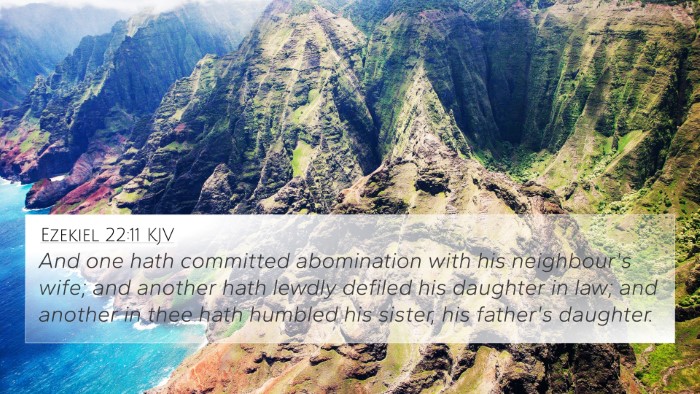
Ezekiel 22:11 (KJV) »
And one hath committed abomination with his neighbour's wife; and another hath lewdly defiled his daughter in law; and another in thee hath humbled his sister, his father's daughter.
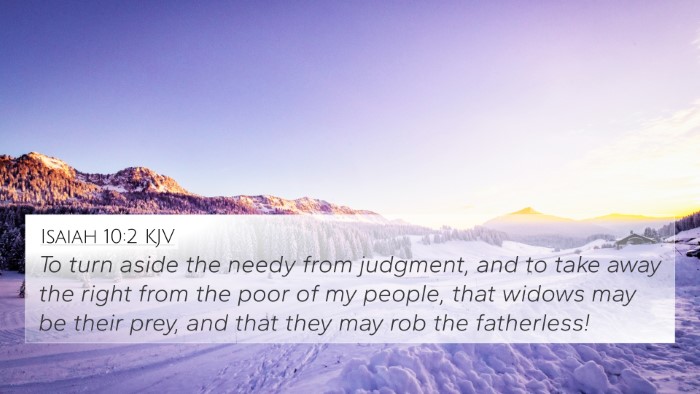
Isaiah 10:2 (KJV) »
To turn aside the needy from judgment, and to take away the right from the poor of my people, that widows may be their prey, and that they may rob the fatherless!
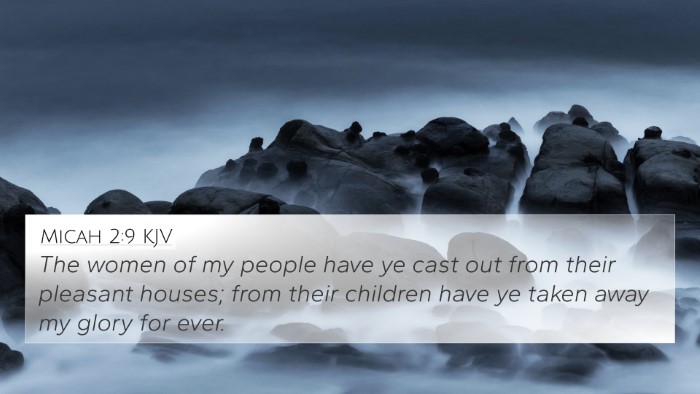
Micah 2:9 (KJV) »
The women of my people have ye cast out from their pleasant houses; from their children have ye taken away my glory for ever.
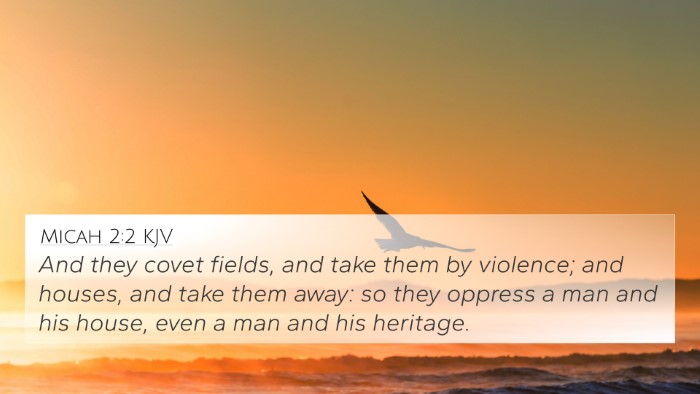
Micah 2:2 (KJV) »
And they covet fields, and take them by violence; and houses, and take them away: so they oppress a man and his house, even a man and his heritage.
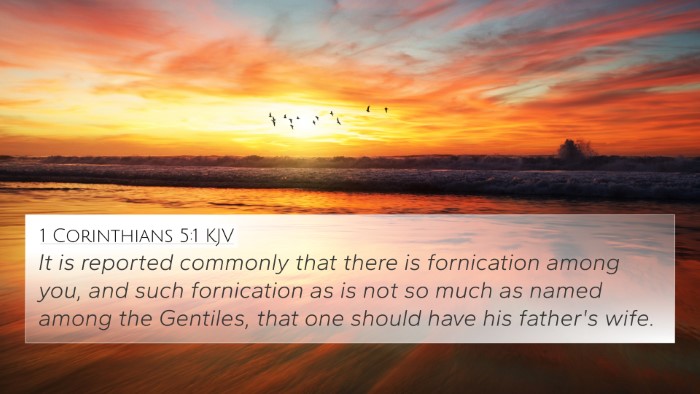
1 Corinthians 5:1 (KJV) »
It is reported commonly that there is fornication among you, and such fornication as is not so much as named among the Gentiles, that one should have his father's wife.
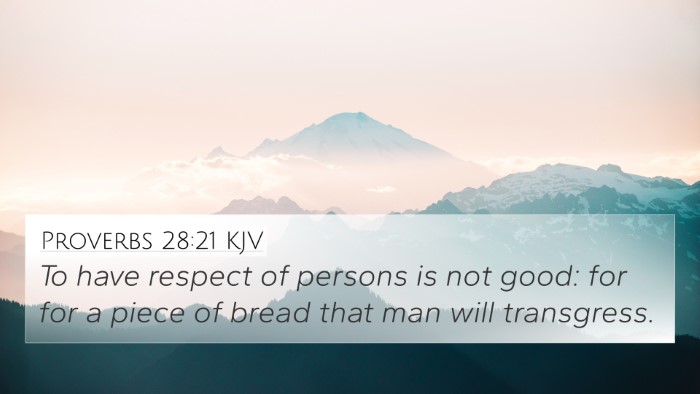
Proverbs 28:21 (KJV) »
To have respect of persons is not good: for for a piece of bread that man will transgress.
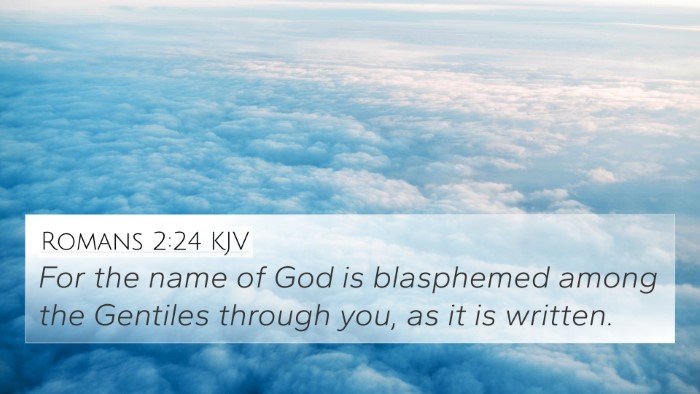
Romans 2:24 (KJV) »
For the name of God is blasphemed among the Gentiles through you, as it is written.
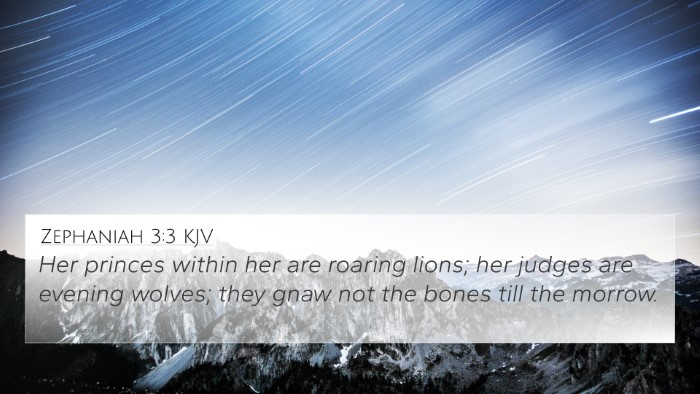
Zephaniah 3:3 (KJV) »
Her princes within her are roaring lions; her judges are evening wolves; they gnaw not the bones till the morrow.
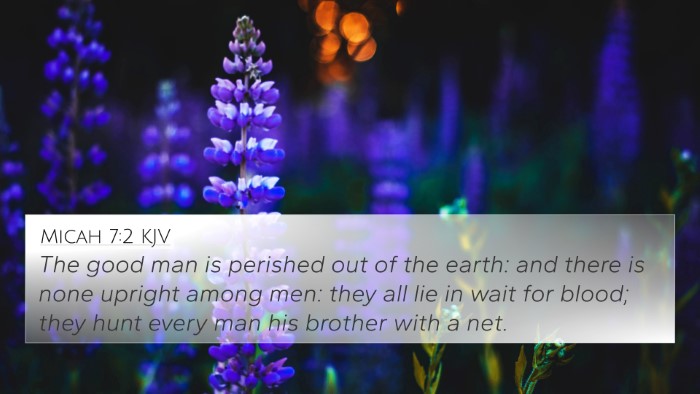
Micah 7:2 (KJV) »
The good man is perished out of the earth: and there is none upright among men: they all lie in wait for blood; they hunt every man his brother with a net.
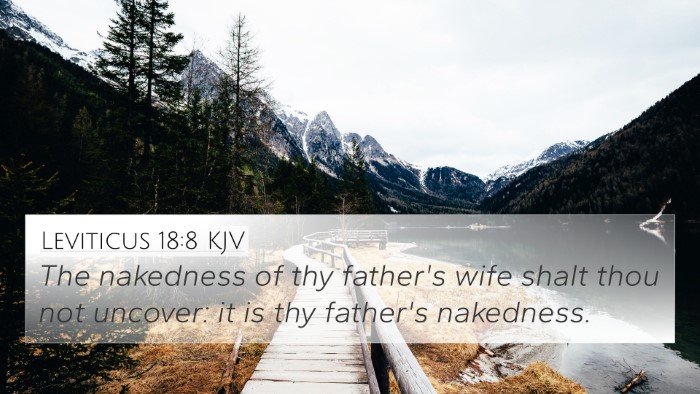
Leviticus 18:8 (KJV) »
The nakedness of thy father's wife shalt thou not uncover: it is thy father's nakedness.
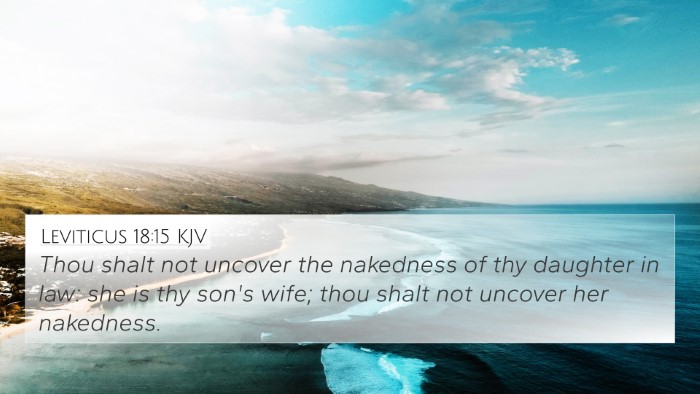
Leviticus 18:15 (KJV) »
Thou shalt not uncover the nakedness of thy daughter in law: she is thy son's wife; thou shalt not uncover her nakedness.
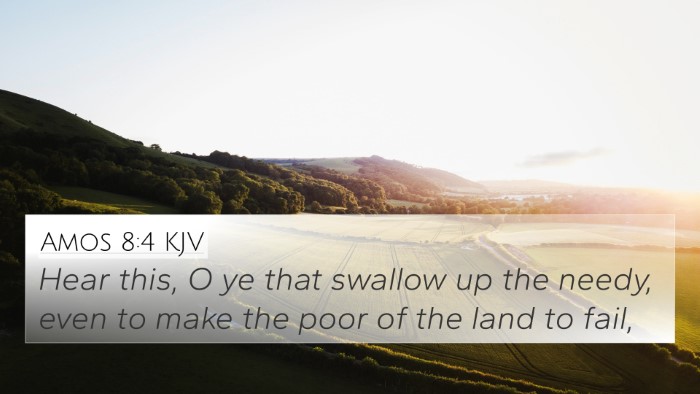
Amos 8:4 (KJV) »
Hear this, O ye that swallow up the needy, even to make the poor of the land to fail,
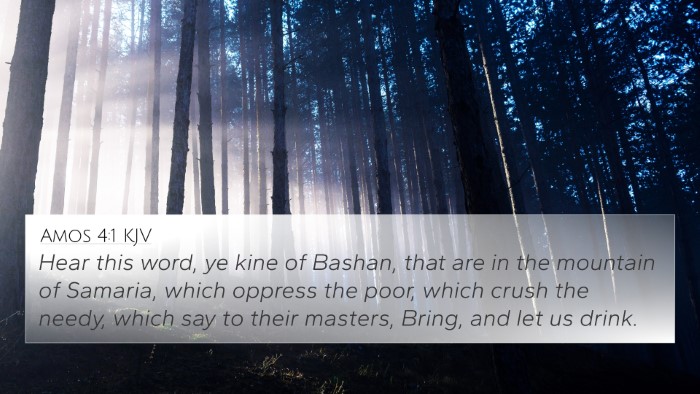
Amos 4:1 (KJV) »
Hear this word, ye kine of Bashan, that are in the mountain of Samaria, which oppress the poor, which crush the needy, which say to their masters, Bring, and let us drink.
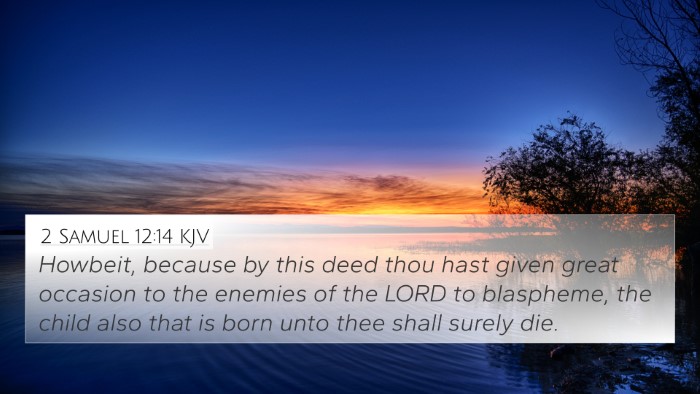
2 Samuel 12:14 (KJV) »
Howbeit, because by this deed thou hast given great occasion to the enemies of the LORD to blaspheme, the child also that is born unto thee shall surely die.
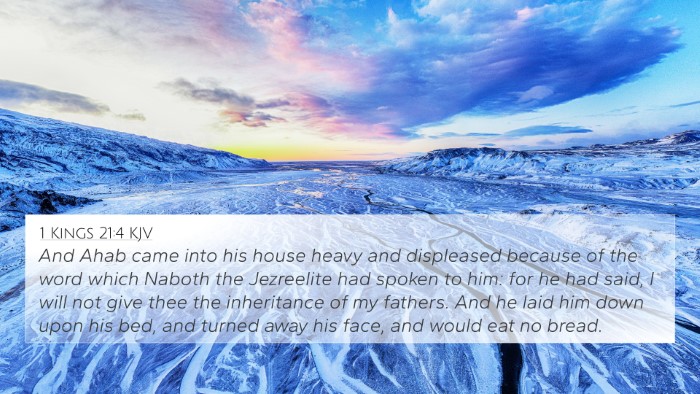
1 Kings 21:4 (KJV) »
And Ahab came into his house heavy and displeased because of the word which Naboth the Jezreelite had spoken to him: for he had said, I will not give thee the inheritance of my fathers. And he laid him down upon his bed, and turned away his face, and would eat no bread.
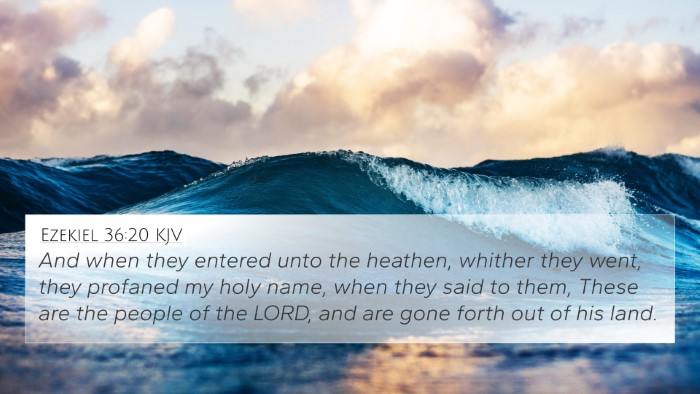
Ezekiel 36:20 (KJV) »
And when they entered unto the heathen, whither they went, they profaned my holy name, when they said to them, These are the people of the LORD, and are gone forth out of his land.
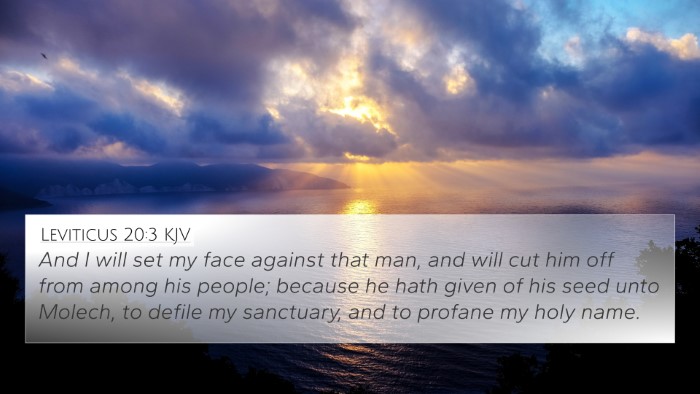
Leviticus 20:3 (KJV) »
And I will set my face against that man, and will cut him off from among his people; because he hath given of his seed unto Molech, to defile my sanctuary, and to profane my holy name.
Amos 2:7 Verse Analysis and Similar Verses
Understanding Amos 2:7
Verse Text: "They pant after the dust of the earth on the head of the poor, and turn aside the way of the meek: and a man and his father will go in unto the same maid, to profane my holy name." (Amos 2:7, KJV)
Summary of Key Themes
Amos 2:7 is a prophetic critique of the behaviors of Israel, emphasizing the moral and social corruption that plagued the people. This verse encapsulates the theme of injustice and the degradation of societal values, showing how the rich exploitation of the poor was condoned.
Insights from Commentaries
-
Matthew Henry:
Henry emphasizes the insatiable greed of the people, illustrating how they were so consumed by their desires that they disregarded the well-being of the less fortunate. The "dust of the earth" symbolizes their contempt for the poor.
-
Albert Barnes:
Barnes explains that the actions depicted show a profound moral decay and a disregard for God’s laws. The verse serves as a divine indictment against those who exploit the vulnerable. This reflects a deeper spiritual failure to honor God through righteous living.
-
Adam Clarke:
Clarke interprets the phrase about "the dust of the earth" to signify the base desires of man, indicating that the oppressors are preoccupied with their own elevation at the cost of the oppressed. He warns of the perils of such behavior as it leads to divine judgment.
Bible Verse Cross-References
Amos 2:7 connects with several other biblical passages that highlight themes of justice, oppression, and moral corruption:
- Isaiah 3:14-15: Discusses the unjust treatment of the poor and God's judgment against the oppressors.
- Micah 6:8: Calls for justice, mercy, and humility, contrasting the behaviors described in Amos 2:7.
- James 5:1-6: Condemns the rich for their exploitation of the poor and the corrupt accumulation of wealth.
- Lamentations 3:34-36: Indicates that God does not overlook the perversion of justice.
- Proverbs 14:31: States that those who oppress the poor insult their Maker, reaffirming the themes present in Amos.
- Zechariah 7:10: Commands the people to render true judgment and show kindness and mercy.
- Matthew 23:14: Jesus denounces those who devour widows' houses, calling attention to corrupt practices against the weak.
Connecting the Verse
In understanding Amos 2:7, one can see the connections and parallels it has throughout Scripture:
- Thematic Bible verse connections show a continuity in God's concern for justice, spanning both the Old and New Testaments.
- Comparative Bible verse analysis helps to identify the similarities in prophetic voices calling for social justice.
- Cross-referenced themes illuminate the consistent message that God desires mercy and justice over ritualistic religion.
Inter-Biblical Dialogue
The themes in Amos provide insight into ongoing dialogues within the Bible regarding the treatment of the marginalized:
- Identifying connections between Old Testament prophetic declarations and New Testament teachings enhances understanding of social justice.
- Cross-referencing Psalms with New Testament teachings reveals how foundational these principles are to Christian ethics.
Using Cross-References for Deeper Understanding
Tools for Bible cross-referencing can enrich one’s study, allowing for:
- How to use Bible cross-references: guides readers to explore related scriptures for a holistic understanding of God's character and intentions.
- Bible cross-reference guide: aids in connecting disparate parts of Scripture to form a coherent message about justice and compassion.
Concluding Thought
Amos 2:7 serves as a powerful reminder of the persistent call to justice and integrity in personal and societal conduct. The linkages with other biblical texts reveal a grand narrative emphasizing God's unwavering desire for righteousness. By engaging in comparative studies and understanding cross-references, believers can cultivate a more profound relationship with Scripture and comprehend the weight of divine justice.
